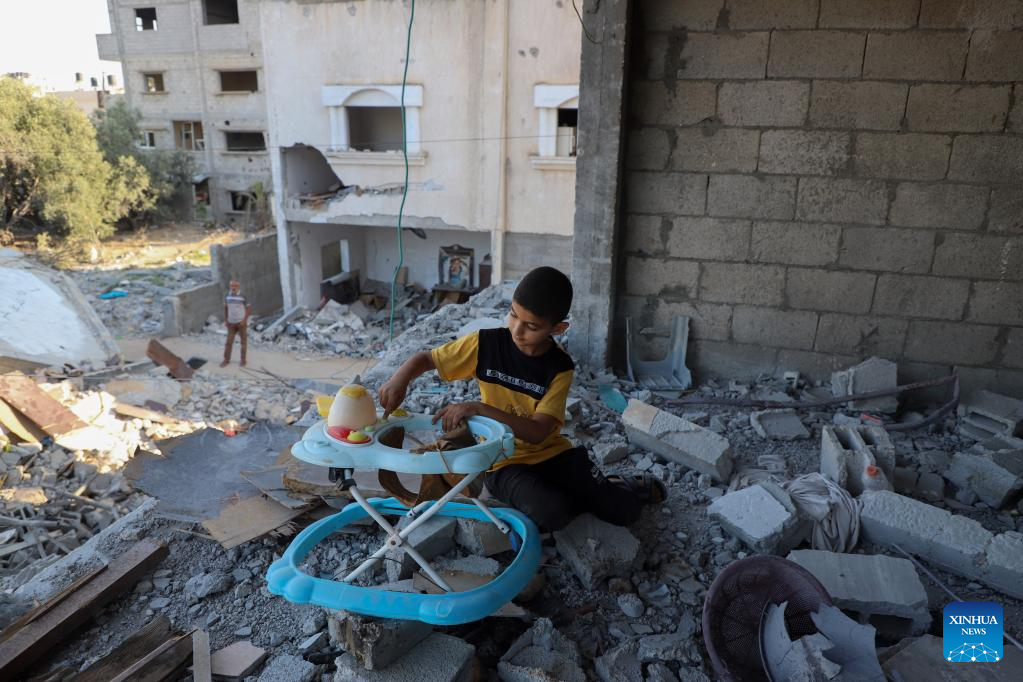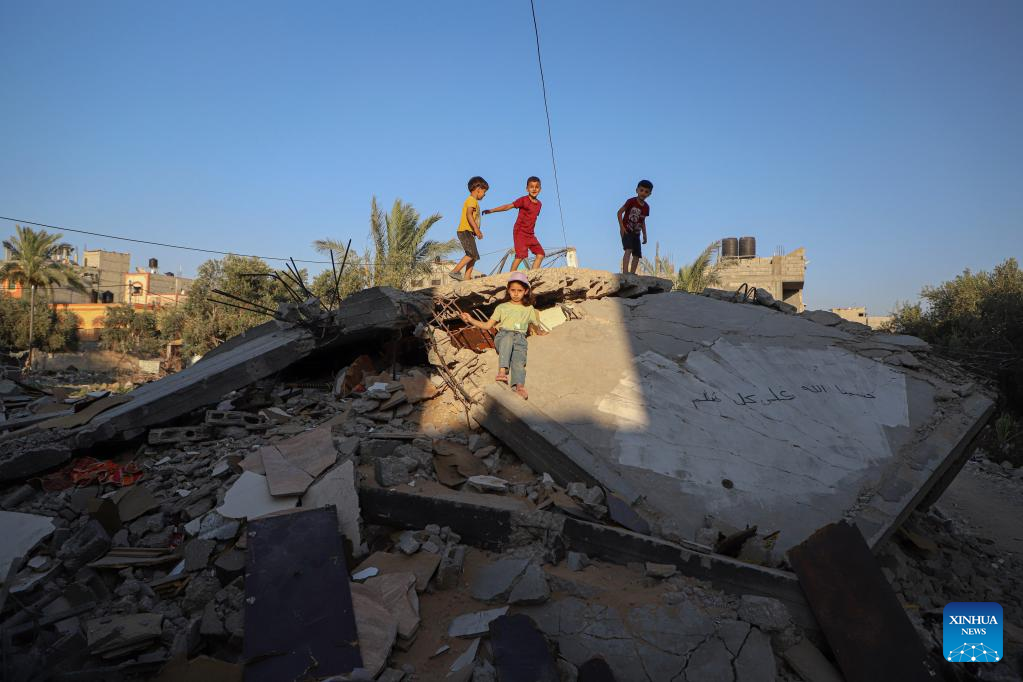
A Palestinian child plays near a house after it was destroyed in Deir al-Balah refugee camp in central Gaza Strip, June 20, 2023. With their house being destroyed in recent Israeli airstrikes, many Gazans are deprived of the joy of this year's Eid al-Adha, one of the most celebrated festivals on the Islamic calendar. (Photo by Rizek Abdeljawad/Xinhua)
GAZA, June 26 (Xinhua) -- With their house being destroyed in recent Israeli airstrikes, many Gazans are deprived of the joy of this year's Eid al-Adha, one of the most celebrated festivals on the Islamic calendar.
"We used to spend long hours every day preparing for the Eid festival, cleaning and decorating our house, buying sweets and making cakes for Eid," Najah Nabhan, a 62-year-old woman from Beit Lahia, a city in northern Gaza, told Xinhua.
Now, instead of going to the markets and buying new clothes, Najah's grandchildren were searching between the rubble of their destroyed house for clothes they could wear.
"When I see such painful and sad scenes of my kids, I wish I was killed during the Israeli airstrike. The Israelis destroyed not only our house, but also our total life as well as our hopes," Mohammed Nabhan, Najah's son, told Xinhua.
"I do not know how other people in Gaza will celebrate the Eid. For me, the festival will be spent on the ruins and pain," the 39-year-old lamented.
In May, Gaza and the Israeli army engaged in a five-day military confrontation after a sudden Israeli airstrike killed three senior leaders of the Palestinian Islamic Jihad (PIJ) movement in the enclave.
During the conflict, the Israeli army destroyed 120 residential units in Gaza, leading to the displacement of more than 1,000 people, according to official statistics issued by the Hamas-run Ministry of Public Works and Housing in Gaza.
The Israeli army said its attacks targeted sites belonging to the PIJ and houses it used to launch rockets at Israeli cities.
"Even if their allegations are true, what is the fault of our children, who have to live a harsh life like this?" said Mohammed Abu Obeid, a 52-year-old man who lost his house in May.
It was the second time that Abu Obeid has lost his residence. The Israeli army destroyed his house in 2014, accusing him of involvement in military activities with the PIJ.
"During the first time (2014), I was displaced for more than three years before I managed to rebuild my house in late 2017. Now, my 20-member families became displaced again and can not celebrate the Eid," the man said with a broken voice.
Both Nabhan and Abu Obeid fear that they would have to wait a long time before their homes can be rebuilt, as officials in Gaza have warned them about the lack of international donations.
"It is truly a tragic situation that we are currently living through ... We hope that this renewed suffering from time to time will end someday," Abu Obeid said.
The Gaza Strip needs about 205.5 million U.S. dollars to reconstruct all the houses destroyed during the wars since 2008, according to Jawad al-Agha, the undersecretary of the Hamas-run Ministry of Public Works and Housing in Gaza.
"Currently, there are about 1,980 totally-destroyed and more than 90,000 partially-destroyed houses that have not been reconstructed," said al-Agha. ■

Palestinian children stand on the ruins of houses in Deir al-Balah refugee camp in central Gaza Strip, June 20, 2023. With their house being destroyed in recent Israeli airstrikes, many Gazans are deprived of the joy of this year's Eid al-Adha, one of the most celebrated festivals on the Islamic calendar. (Photo by Rizek Abdeljawad/Xinhua)



